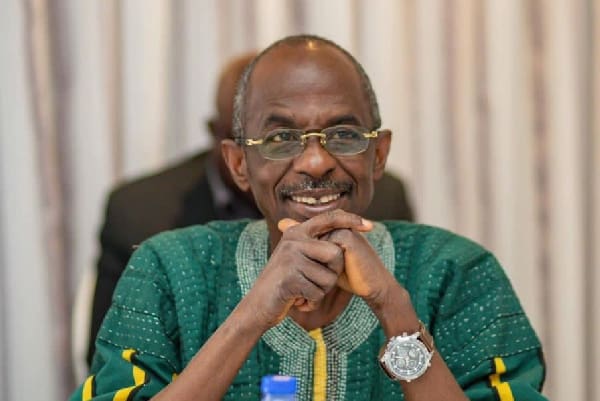Legal practitioner Martin Kpebu has raised concerns about the emphasis Ghanaian voters place on physical appearance over competence in political leadership, using NDC Chairman Johnson Asiedu Nketia’s potential presidential ambitions as a case study for deeper electoral discourse.
Speaking on Joy FM’s Super Morning Show with Kojo Yankson, Kpebu acknowledged that Asiedu Nketia possesses the capability to win Ghana’s presidency but cautioned that superficial perceptions remain “the elephant in the room” in Ghanaian politics.
The comments come amid growing speculation about Asiedu Nketia’s presidential ambitions following his controversial three-day Eastern Region “thank you tour” from September 17-19, which critics described as premature campaigning for the 2028 elections. The tour covered 16 constituencies and sparked internal NDC debates about appropriate timing for such activities.
Kpebu criticized the electorate’s tendency to prioritize style over substance, arguing that Ghanaians have previously elected leaders based on charisma who subsequently delivered poor governance outcomes. “People said [a former president] had swag. Where did we land? We ended up with the worst indices—corruption, disempowerment, economy, everything tanked,” he observed.
The lawyer’s analysis reflects broader questions about electoral behavior in Ghana, where candidate appeal often intersects with cultural expectations about presidential presentation. His comments suggest that voters may need to recalibrate their assessment criteria to focus on track record and competence rather than superficial attributes.
Asiedu Nketia’s political profile has evolved significantly following the NDC’s decisive 2024 electoral victory, where he played a central role in the party’s strategic planning. The NDC secured over 57% of the presidential vote, with Asiedu Nketia’s organizational leadership contributing to what observers described as a comprehensive victory over the ruling New Patriotic Party.
Kpebu referenced former President Jerry John Rawlings’ previous observations about Asiedu Nketia, noting that the late statesman recognized the chairman’s strong grassroots connections and political acumen. This endorsement from the NDC’s founding father adds historical weight to discussions about Asiedu Nketia’s leadership credentials.
The perception challenge Kpebu identified reflects broader tensions in Ghanaian democratic culture between traditional expectations of presidential bearing and contemporary political realities. Successful political leadership increasingly requires organizational skills, strategic thinking, and policy expertise rather than ceremonial presence.
Recent developments have intensified speculation about Asiedu Nketia’s presidential intentions. Former Kumbungu MP Ras Mubarak criticized the chairman’s tour as setting “dangerous precedents” and creating unnecessary distractions from the new government’s work, while supporters defended it as legitimate appreciation for electoral success.
The timing of Asiedu Nketia’s regional activities has drawn scrutiny given that President John Mahama completed his own nationwide thank-you tour in July 2025. The proximity of the two tours raised questions about coordination and potential confusion of roles within the party structure.
Kpebu’s assessment suggests that Asiedu Nketia’s presidential prospects depend significantly on the NDC’s internal endorsement process and whether voters can move beyond superficial judgments to evaluate candidates based on demonstrated competence and vision.
The chairman’s political trajectory includes serving as the NDC’s longest-serving General Secretary before ascending to the chairmanship, providing extensive experience in party organization and electoral strategy. His role in the 2024 victory demonstrated strategic capabilities that could translate to executive leadership.
For the NDC, managing potential succession discussions while maintaining unity behind the current Mahama administration presents delicate political balancing. Early presidential positioning could create internal tensions that affect party cohesion and governance effectiveness.
The broader implications of Kpebu’s observations extend beyond individual candidacies to questions about democratic maturity and voter education in Ghana. The lawyer’s call for looking “beyond the optics” suggests need for civic discourse about appropriate criteria for presidential selection.
Asiedu Nketia himself has indicated that discussions about 2028 are premature, emphasizing that focus should remain on the current government’s success. However, his son’s recent comments about “Ghana needing Asiedu in 2028” have kept succession speculation alive within political circles.
The electoral dynamics Kpebu described reflect challenges facing many African democracies where personality politics often overshadows policy debates. The emphasis on appearance and style over substantive qualifications can limit the pool of effective leaders willing to seek office.
Source: newsghana.com.gh











